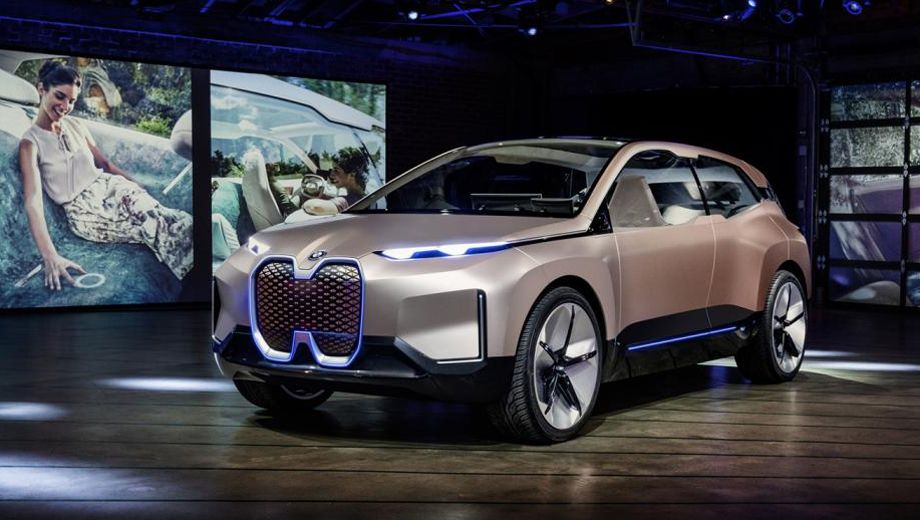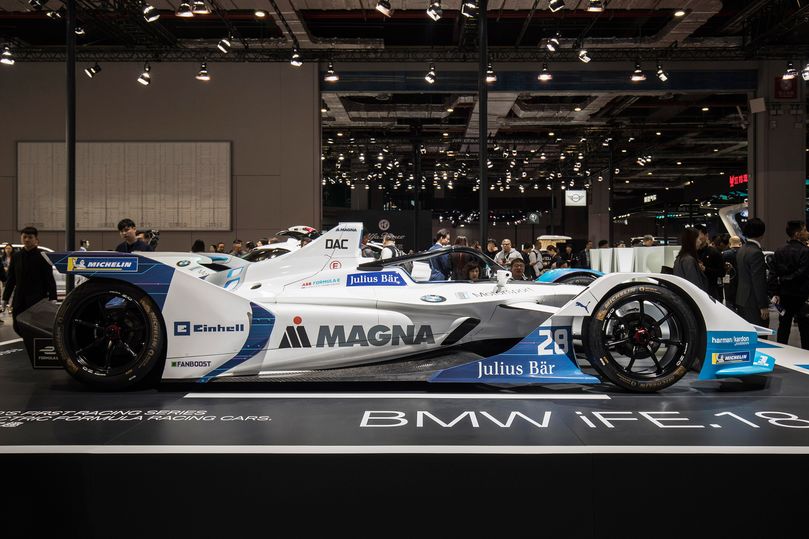There was electricity in the air at this week's Shanghai Auto Show, with the battery-car brigade rolling into town like never before.
Established global makers and dozens of local startups are rushing to showcase electric-vehicle models in a push led by China, the world's largest car market.
But there’s a dark side: while companies have plowed billions of dollars into development, projected EV sales may not be enough to keep the assembly lines moving, suggesting only a few companies will survive when the dust settles.
Here are some of the sleekest, most technologically advanced models on display at the annual Shanghai showcase.
Mercedes-Benz Concept GLB: Mercedes-Benz unveiled the concept sport utility vehicle with rugged design and space for as many as seven passengers to expand its in-demand lineup of mid-sized and compact cars. The GLB prototype, featuring 17-inch wheels, harks back to the unveiling of the Mercedes-Benz GLA crossover in Shanghai six years ago, which heralded the brand’s successful shakeup of its compact-car offerings.
BMW Vision iNEXT: The concept car comes with touch functionality and autonomous-driving features, while the vehicle's personal assistant technology can offer the driver advice.
Also read: BMW's Vision iNext concept puts the 'passenger experience' on wheels
BMW iFE.18: BMW’s first electric race car is competing in the Formula E Championship, which car brands use as a test lab to develop technologies.
Renault EZ Ultimo: Renault calls its concept an autonomous, connected and 100-percent electric "robo-vehicle." It has a two-tone bodywork, with the upper part made up of 600 diamond-shaped facets that work like a one-way mirror to keep the interior away from prying eyes.
Audi AI:ME: Following its E-Tron electric crossover, Audi is going more futuristic with the AI:ME concept. The compact vehicle, with a sloped roofline at the front, comes with automated-driving features and a large screen behind the steering wheel.
Audi Q2L: An electric car specifically for Chinese market, Audi's Q2L is a longer version of its standard Q2, offering increased legroom.
Nissan IMQ: The electric concept that Nissan calls an "elevated sports sedan" has the battery under the body and a wider wheelbase, allowing for a more spacious cabin.
Volkswagen I.D. Roomzz: The German auto giant unveiled the electric sport utility vehicle concept to challenge Tesla Inc.'s Model X. The full-sized SUV will be available from 2021 and feature rotating lounge-seats covered in so-called AppleSkin – an artificial leather made in part from apple-juice waste.
Renault EZ Ultimo: Renault calls its concept an autonomous, connected and 100-percent electric "robo-vehicle." It has a two-tone bodywork, with the upper part made up of 600 diamond-shaped facets that work like a one-way mirror to keep the interior away from prying eyes.
NIO ET Preview: This is the first in NIO's ET sedan series. NIO, which is vying to be China's answer to Tesla, raised about $1 billion in a New York listing last year, valuing the company at $6.4 billion.
BAIC Arcfox-GT: This is BAIC Group's top-of-the-line electric vehicle, capable of slingshotting to 100km/h in 2.59 seconds.
Qiantu K50: The electric coupe from the Chinese upstart has a whopping 400 horsepower, which the manufacturer hopes will help lure U.S. buyers.
Xpeng G3: The five-seater electric SUV has a panoramic windshield and autonomous-driving features. Xpeng handed over the first batch of the vehicles, priced at about US$33,000 to US$37,500 before subsidies, in December.
Icona Nucleus: The sleek and fully autonomous Icona Nucleus concept has no traditional windows, but comes with semi-transparent bodycolor panels that allow passengers to look out while remaining shrouded from the outside.















Hi Guest, join in the discussion on The future's electric at the Shanghai Auto Show